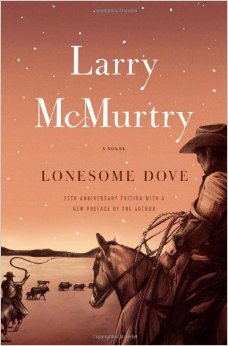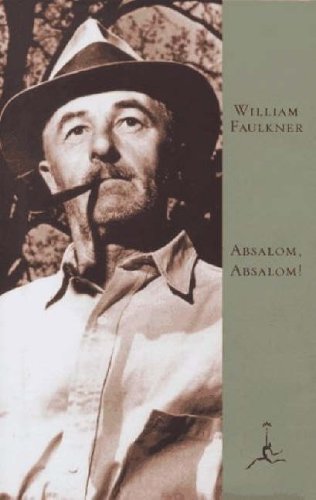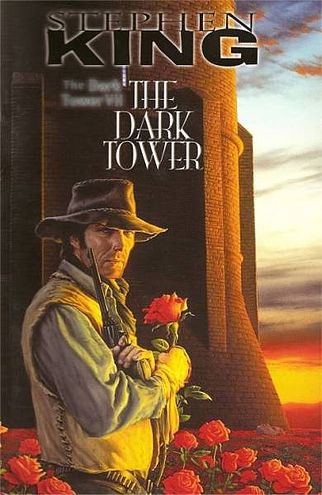What I Read When I Edit
 Written by: admin• April 26, 2016
Written by: admin• April 26, 2016
I’m winding down the first edit of my novel, and this is exciting for me. The book, which was a little north of 300 pages when I finished drafting, is now 271, which I’d expected. During my first edit, I usually cut between 10 and 15% of the content. The next step is to start over and read the entirety of the book into a recording program like Garage Band to hear how it sounds when I listen. Essentially, what I’m searching for is spots where the prose sounds clunky rolling off my tongue. Once this part of the edit is done, it goes to my wife to proofread, and then I’ll bring it before my writing group for assessment, and I am, of course, hoping it’s well-received. This doesn’t mean I’m looking for straight praise in bringing the book before them. In fact, it’s likely that while I’ll enjoy anything nice they have to say about it, I’ll focus more on the sections they feel lack clarity (if there are such) or advice on further cuts, which I’m always happy to make. But all this is still a bit in the future. What I’ve been thinking about lately, and what I haven’t seen much discussed, is what a writer chooses to read while editing, because reading material can have a profound impact on how you approach editing style. Just as there are certain books I like to read while drafting, there are books I like to read during the edit. These can overlap in certain instances, but in other they diverge. So here are just a few examples of the types of books I like to read while editing:
1. Books set in the era or location of the work I’ve written.
 This should come as no surprise. I do this during drafting too, and it’s probably more helpful then. In this instance, my novel is set first in Wyoming Territory in the 1870s and then in New Mexico Territory in 1883. Obviously I can’t travel to either of these places in time, and I can’t really afford to travel to them in the present, so I rely on novels set during these years. One particular writer I’ve turned to during the writing and editing has been Larry McMurtry and his Lonesome Dove tetralogy. I read the title book while I was writing my novel and even open the draft with a quotation from it. Now that I’m editing I’m reading Comanche Moon, which though it hasn’t influenced the story, shares similar qualities with what I’ve written. I also spent a great deal of time researching during the initial drafting of my novel. There was a fair bit of diversity in the Southwest at the time I’m writing about, so I did my best to read books on the Apache and Navajo, the Mexican-American war which essentially allowed the US to create the territories in which my work takes place, though the war happened long before, and the Civil War, which sent a great number of people drifting West looking for new homes and lives.
This should come as no surprise. I do this during drafting too, and it’s probably more helpful then. In this instance, my novel is set first in Wyoming Territory in the 1870s and then in New Mexico Territory in 1883. Obviously I can’t travel to either of these places in time, and I can’t really afford to travel to them in the present, so I rely on novels set during these years. One particular writer I’ve turned to during the writing and editing has been Larry McMurtry and his Lonesome Dove tetralogy. I read the title book while I was writing my novel and even open the draft with a quotation from it. Now that I’m editing I’m reading Comanche Moon, which though it hasn’t influenced the story, shares similar qualities with what I’ve written. I also spent a great deal of time researching during the initial drafting of my novel. There was a fair bit of diversity in the Southwest at the time I’m writing about, so I did my best to read books on the Apache and Navajo, the Mexican-American war which essentially allowed the US to create the territories in which my work takes place, though the war happened long before, and the Civil War, which sent a great number of people drifting West looking for new homes and lives.
2. Authors whose prose style I would like to invoke.
 Again, I do this with drafting, but the set of authors I’m emulating when I draft aren’t always the authors I wish to emulate when I’m editing. As I mentioned previously, for me influence isn’t a one-to-one ratio once you get past your juvenile writing years, but influence still exists. I’d like to believe I have my own voice which formed by mashing up writers I admire. In the case of the novel I’m writing now, I turned a great deal to Faulkner. Given one of the stronger themes of the novel is the way past violence haunts the present, he’s the ideal writer to turn to, since he’s probably done that best, and I like his circuitous rambling prose. Of course, when I workshopped the first chapters, someone in my writing group mentioned Cormac McCarthy, which I understand. He’s a writer I’ve enjoyed, though I don’t particularly feel any deep affinity to his work, and I often think of him as having stylistically cribbed his voice from Faulkner. In Faulkner’s hands, the style has always felt natural (not to be confused with naturalistic because it’s often anything but) as though this is the best way language can reflect the lives and experience of the citizen of Yoknapatawpha county. In McCarthy, it often feels to me like more of an affectation. In any case, I wanted the Faulkner feel while drafting but now that I’m done I want some distance from that. I want the prose to be as clean and efficient as possible, so I’m taking what I wrote while drafting and trimming it down under the influence of Dashiell Hammett and Raymond Chandler. One of the rules I wrote when beginning the editing process was Watch for places where implication is followed by explanation. If the implication suffices, cut the explanation. If you ask me, this is one of the things hard-boiled detective fiction does well. The Maltese Falcon, for instance is one of those books where everything feels absolutely essential. Of course, there are literary novels like that, but I’m not kidding myself. When I sat down to write this book, though I wanted to bring literary quality writing to the table, I also wanted to merge the genres I’ve always loved: horror, western, mystery. And so in the process of editing, I’m looking for the best genre novels for guidance.
Again, I do this with drafting, but the set of authors I’m emulating when I draft aren’t always the authors I wish to emulate when I’m editing. As I mentioned previously, for me influence isn’t a one-to-one ratio once you get past your juvenile writing years, but influence still exists. I’d like to believe I have my own voice which formed by mashing up writers I admire. In the case of the novel I’m writing now, I turned a great deal to Faulkner. Given one of the stronger themes of the novel is the way past violence haunts the present, he’s the ideal writer to turn to, since he’s probably done that best, and I like his circuitous rambling prose. Of course, when I workshopped the first chapters, someone in my writing group mentioned Cormac McCarthy, which I understand. He’s a writer I’ve enjoyed, though I don’t particularly feel any deep affinity to his work, and I often think of him as having stylistically cribbed his voice from Faulkner. In Faulkner’s hands, the style has always felt natural (not to be confused with naturalistic because it’s often anything but) as though this is the best way language can reflect the lives and experience of the citizen of Yoknapatawpha county. In McCarthy, it often feels to me like more of an affectation. In any case, I wanted the Faulkner feel while drafting but now that I’m done I want some distance from that. I want the prose to be as clean and efficient as possible, so I’m taking what I wrote while drafting and trimming it down under the influence of Dashiell Hammett and Raymond Chandler. One of the rules I wrote when beginning the editing process was Watch for places where implication is followed by explanation. If the implication suffices, cut the explanation. If you ask me, this is one of the things hard-boiled detective fiction does well. The Maltese Falcon, for instance is one of those books where everything feels absolutely essential. Of course, there are literary novels like that, but I’m not kidding myself. When I sat down to write this book, though I wanted to bring literary quality writing to the table, I also wanted to merge the genres I’ve always loved: horror, western, mystery. And so in the process of editing, I’m looking for the best genre novels for guidance.
3. Novels that I like but that I recognize as being poorly edited.
 Maybe I should avoid touching on this here. As much as it pains me to say, and for as much love as I have for the guy’s books, I turn to Stephen King works as examples of poorly edited novels. In his afterwords, he insists he edits them. He insists he has an editor help him edit them. I’m sure he could provide originals and proof that the originals were edited, but I can’t help feeling as a fan that he’s at a point in his career where he’s made buckets of money and sold loads of work and no one is going to come straight out and tell him that he can probably chop another 200 pages out of his books and they won’t suffer any. And truth be told, I read every single Stephen King novel that comes out, and every time on almost every page I find examples of passages where, if it were my work I think, I would have cut that. That may be presumptuous of me. You may have just stumbled across my blog and you might be thinking, just who does this guy think he is? And you’re right. I’m no one. But I’m allowed to have my opinions and preferences, and I like prose (in finished works mind you; please don’t point to my blog as evidence against this because quite frankly it’s a blog!) that is concise, clean. I like superfluities cut. And King doesn’t do that. So to that extent, I think it’s time I pull that final volume of The Dark Tower series off myself and finally finish the saga. The man is a magical storyteller, a weaver of nightmare worlds and intriguing plots, but you can’t honestly tell me it’s possible to release two 400+ page books every year and call them well-edited, can you? (Which, now that I think of it is actually the same reason you can’t expect stellar editing from a blog).
Maybe I should avoid touching on this here. As much as it pains me to say, and for as much love as I have for the guy’s books, I turn to Stephen King works as examples of poorly edited novels. In his afterwords, he insists he edits them. He insists he has an editor help him edit them. I’m sure he could provide originals and proof that the originals were edited, but I can’t help feeling as a fan that he’s at a point in his career where he’s made buckets of money and sold loads of work and no one is going to come straight out and tell him that he can probably chop another 200 pages out of his books and they won’t suffer any. And truth be told, I read every single Stephen King novel that comes out, and every time on almost every page I find examples of passages where, if it were my work I think, I would have cut that. That may be presumptuous of me. You may have just stumbled across my blog and you might be thinking, just who does this guy think he is? And you’re right. I’m no one. But I’m allowed to have my opinions and preferences, and I like prose (in finished works mind you; please don’t point to my blog as evidence against this because quite frankly it’s a blog!) that is concise, clean. I like superfluities cut. And King doesn’t do that. So to that extent, I think it’s time I pull that final volume of The Dark Tower series off myself and finally finish the saga. The man is a magical storyteller, a weaver of nightmare worlds and intriguing plots, but you can’t honestly tell me it’s possible to release two 400+ page books every year and call them well-edited, can you? (Which, now that I think of it is actually the same reason you can’t expect stellar editing from a blog).
[mc4wp_form id=6322]


